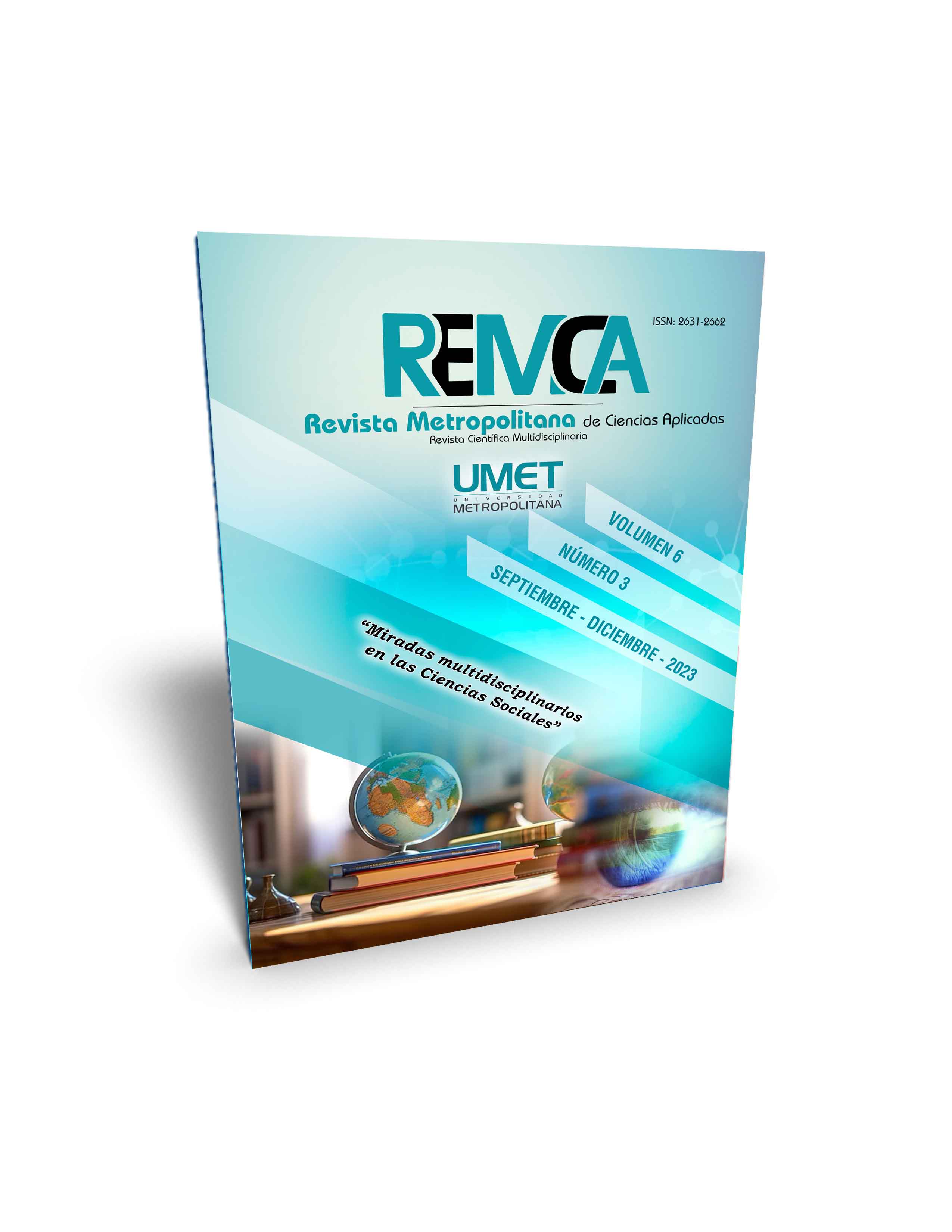The voluntary principle of mediation in notarial acts
DOI:
https://doi.org/10.62452/rw14yx57Keywords:
Voluntary Principle, notary, mediationAbstract
The present work proposed to investigate the principle of voluntariness that governs the mediation system, as an effective device to solve extrajudicial conflicts. The methodological approach will be systemic, of a theoretical - deductive type, of a socio - legal nature and with the support of comparative law. Through comparative law, mainly the study of the regulations that contemplate the competence of notaries as mediators in Spain, Mexico and Germany, the possibility that its implementation within the Ecuadorian notarial system may be feasible was analyzed. The principle of voluntariness, notarial mediation and notarial acts were defined conceptually, to later proceed to carry out the respective discussion. It was concluded that in mediation it is the same interested parties who voluntarily accept the responsibility of resolving their conflicts and reaching satisfactory agreements for all parties. This through a simple and flexible procedure, assisted by the impartial and confidential presence of the notary trained for such purposes. In Ecuador, as in countries such as Spain and Mexico, notaries, as public officials of the State and specialists in Law, are able to advise on resolving certain conflicts that arise between the parties without having to go to trial.
Downloads
References
Aguilar, L. (2020). La función notarial: antecedentes, naturaleza y nuevas tendencias. (Tesis de Doctorado). Universidad de Salamanca.
Bernal, T. (2008). La mediación, una solución a los conflictos de pareja. Colex.
Cabrera, R. (2017). La Mediación como Método para la Resolución de Conflictos. Midac, SL.
Cobo, A., & Mesías, M. (agosto de 2018). Med-arb, arb-Medyarb-Med-arb a la luz de la legislación ecuatoriana. USFQ Law Revie, 5(1), 36-60.
Consejo de la Judicatura del Estado de México. (2022). Reglamento del Centro de Mediación y Conciliación Notarial del Estado de México. https://legislacion.edomex.gob.mx/sites/legislacion.edomex.gob.mx/files/files/pdf/gct/2022/octubre/oct061/oct061g.pdf
Consejo General de Notariado en España. (2020). Mediación: resolución de conflictos. https://www.notariado.org/portal/mediaci%C3%B3n-ante-notario
Ecuador. Asamblea Nacional Cosntituyente. (2009). Constitución de la República del Ecuador. Registro Oficial No. 449. https://www.registroficial.gob.ec/index.php/registro-oficial-web/publicaciones/registro-oficial/item/download/3671_b4a5b490daeca82939d7d0479cec8c37
Ecuador. Asamblea Nacional. (2021). Reglamento a la Ley de Arbitraje y Mediación. Decreto Ejecutivo No. 165. http://www.pge.gob.ec/images/2022/NormativaMediacion/MERCANTI_REGLAMENTO_A_LA_LEY_DE_ARBITRAJE_Y_MEDIACION.pdf
Ecuador. Congreso Nacional. (2006). Ley del Arbitraje y Mediación. Registro Oficial 417. https://www.funcionjudicial.gob.ec/pdf/Ley%20de%20Arbitraje%20y%20Mediación.pdf
Ecuador. Consejo de la Judicatura. (2021). Beneficios de la mediación. http://www.funcionjudicial.gob.ec/mediacion/index.php/2015-04-13-21-21-25/beneficios-de-la-mediacion
Gobierno del Estado de México. (2002). Ley del Notariado del Estado de México. https://legislacion.edomex.gob.mx/sites/legislacion.edomex.gob.mx/files/files/pdf/ley/vig/leyvig019.pdf
Jequier, E. (2016). La mediación como alternativa de solución de los conflictos empresariales en Chile: Razones y mecanismos para su regulación. , 29(1),. Revista de derecho (Valdivia), 29(1), 91-118.
Mensías, F. (2005). La voluntad. https://derechoecuador.com/la-voluntad/
Milán Morales, N., Ordelin Font, J. L., & Vega Cardona, R. J. (2015). La intervención notarial en la mediación. Consideraciones de ‘lege ferenda’ en la prevención/resolución de conflictos en el ordenamiento jurídico cubano. Revista de derecho Privado, (28), 403–433.
Ortiz, A. P. (2020). El derecho de autonomía de voluntad y el principio de formalidad en los actos que generan consecuencias jurídicas a partir de la sucesión intestada. (Trabajo de titulación). Universidad Técnica de Ambato.
Palma, I. (2021). Alternativa en la mediación notarial para la solución de conflictos. (Tesis de Maestría). Universidad Católica de Santiago de Guayaquil.
Pérez, G., & Cobas, M. (2013). Mediación y jurisdicción voluntaria en el marco de la modernización de la justicia: Una aproximación a la legislación española. Boletín Mexicano de Derecho Comparado, 46(137), 647-677.
Piedra, M., & Polo, E. (2022). El principio de voluntariedad y la tenencia en mediación. Polo del Conocimiento, 7(9), 770-793.
Tarud, C. (2013). El principio de voluntariedad en la mediación familiar, en Chile. Opinión Jurídica. http://www.scielo.org.co/pdf/ojum/v12n23/v12n23a08.pdf
Downloads
Published
Issue
Section
License
Copyright (c) 2023 María Trinidad Mongón-Cepeda, Alfredo Fabian Carrillo (Autor/a)

This work is licensed under a Creative Commons Attribution-NonCommercial-ShareAlike 4.0 International License.
Authors who publish in Revista Metropolitana de Ciencias Aplicadas (REMCA), agree to the following terms:
1. Copyright
Authors retain unrestricted copyright to their work. Authors grant the journal the right of first publication. To this end, they assign the journal non-exclusive exploitation rights (reproduction, distribution, public communication, and transformation). Authors may enter into additional agreements for the non-exclusive distribution of the version of the work published in the journal, provided that acknowledgment of its initial publication in this journal is given.
© The authors.
2. License
The articles are published in the journal under the Creative Commons Attribution-NonCommercial-ShareAlike 4.0 International License (CC BY-NC-SA 4.0). The terms can be found at: https://creativecommons.org/licenses/by-nc-sa/4.0/deed.en
This license allows:
- Sharing: Copying and redistributing the material in any medium or format.
- Adapting: Remixing, transforming, and building upon the material.
Under the following terms:
- Attribution: You must give appropriate credit, provide a link to the license, and indicate if any changes were made. You may do this in any reasonable manner, but not in any way that suggests the licensor endorses or sponsors your use.
- NonCommercial: You may not use the material for commercial purposes.
- ShareAlike: If you remix, transform, or build upon the material, you must distribute your creation under the same license as the original work.
There are no additional restrictions. You may not apply legal terms or technological measures that legally restrict others from doing anything the license permits.




